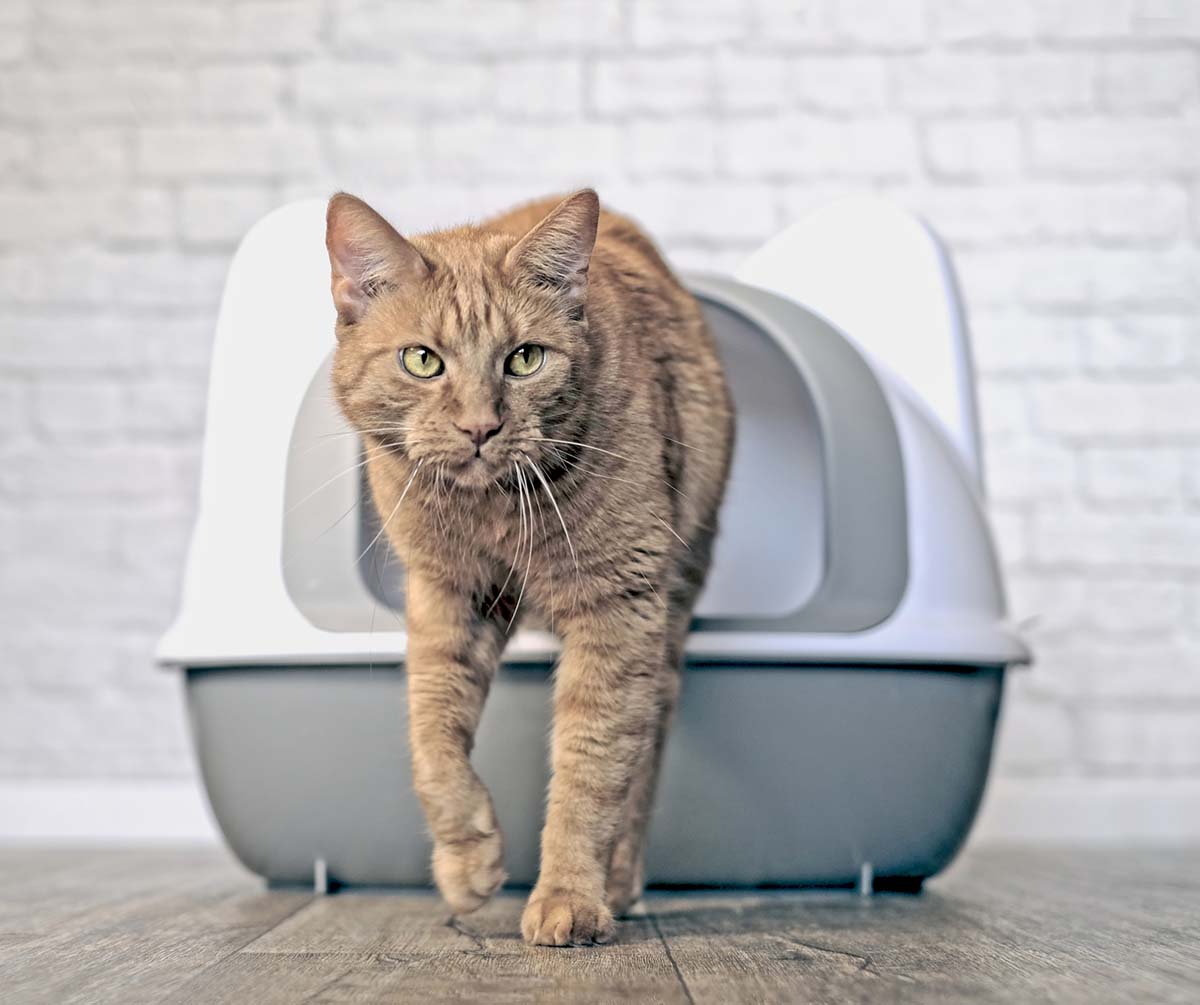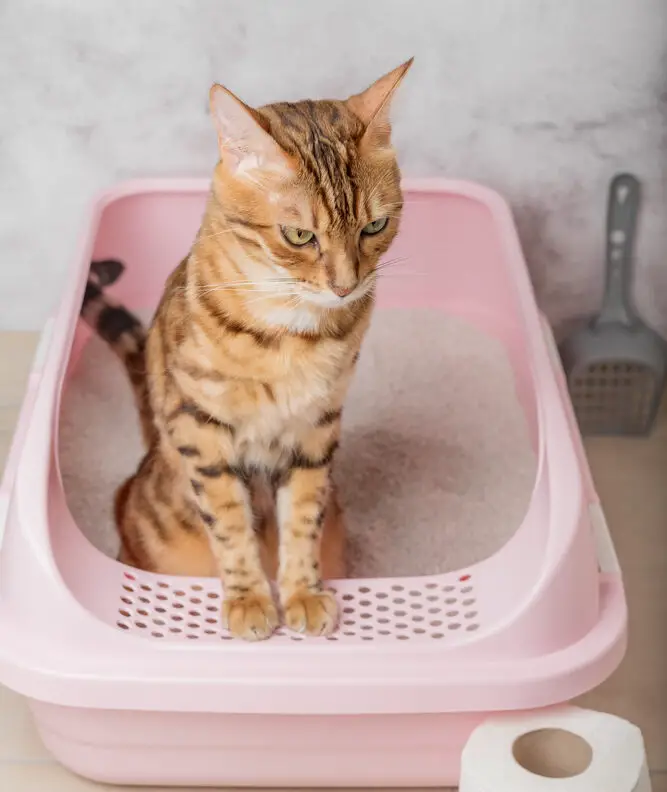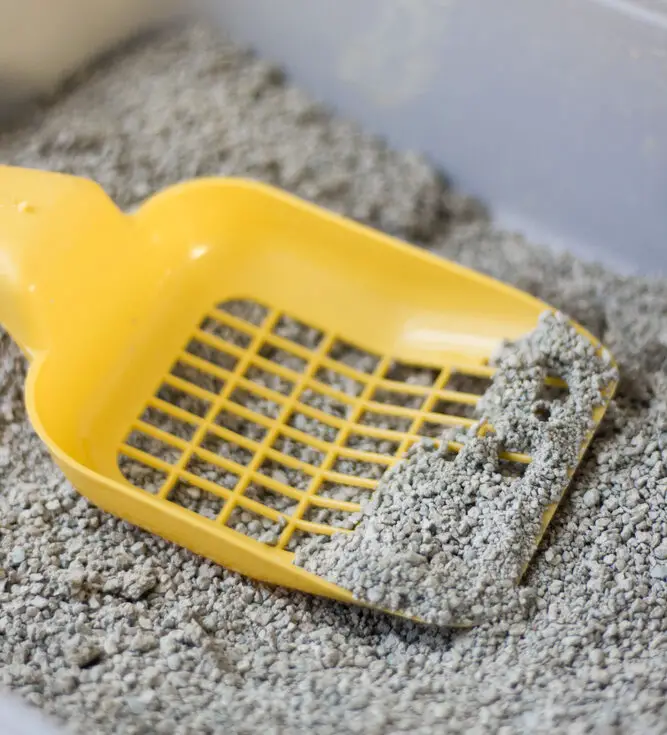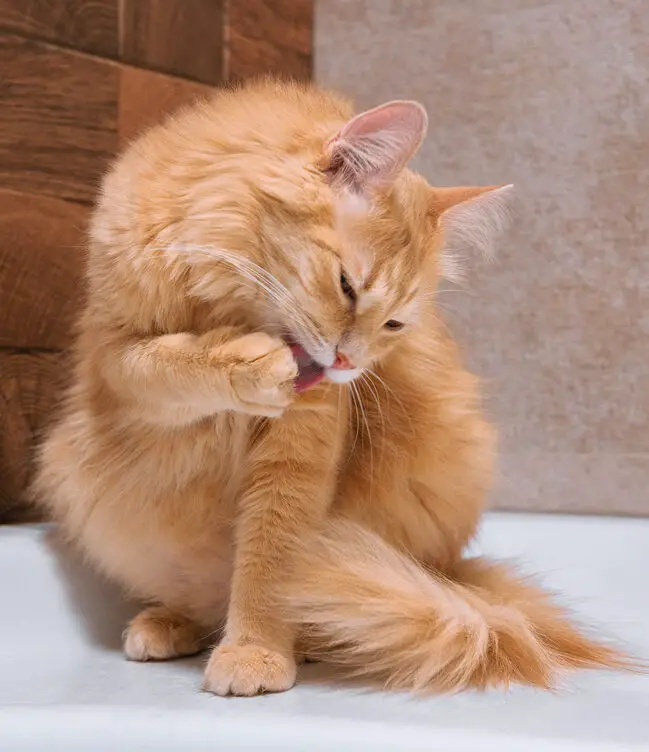What To Do If Your Cat Steps in Poop & Tracks Litter?
Discover effective strategies to minimize cat litter tracking in your home and keep your space clean and odor-free.
It can be frustrating when your cat steps in poop and spreads it all over the house, but there are ways to prevent it. For a notoriously clean animal, it can be surprising when cats track poop all over your house. Nevertheless, long-time feline owners know that this is a common problem.

As someone who has owned cats for years, I share the same struggle with fellow pet owners. My orange tabby Watson used to have the same problem until we came up with an easy solution. In this post, I will share why your cat tracks litter or poop and what you can do about it.
Reasons your cat steps in poop
Identifying the cause of the problem will let you know how to fix the stinky problem. For the most part, the following is the reason why your cat may step on its poop:
1. Litter box problems
One of the key factors in preventing cat litter tracking is choosing the right litter box. Consider the size and design of the litter box, as well as the type of litter it can accommodate. A larger litter box with high sides can help contain the litter and prevent it from scattering outside the box. Additionally, opt for a litter box with a lid or entrance mat that helps trap litter particles on your cat’s paws as they exit the box.
Look for litter boxes made of smooth, non-stick materials that are easy to clean and minimize litter sticking to the surface.
Here are the most common litter box problems that you need to address:
- The litter box is too small. As your cat grows bigger, its litter box should keep up. If not, the kitty will always step on its poop while covering it.
- The litter box is dirty. If there’s too much poop in the litter box, your cat will step on it and spread it on the floor. This is more common if you have multiple cats sharing one litter box.
- The litter isn’t clumping well. A poorly clumping litter will leave the stool uncovered. When your cat steps in poop, it’ll stick to its paw.
- You have a top-entry litter box. A cat is more likely to step on poop if they’re using top-entry models. Since cats must jump out to the top, they will likely track poop in the process.
2. Stress and anxiety
Aside from your cat’s litter box, stress and anxiety can also be the reason. Cats often behave differently when they are stressed or anxious, which includes not covering their poop in the litter box. Aside from stepping on poop, a stressed cat will also exhibit a slew of other behavioral problems. Some will have accidents around the house or become aggressive out of nowhere.

3. Health issues
Medical conditions can also be the root of the problem. This can make it difficult for your cat to enter and exit the litter box without stepping on its poop. Health issues like arthritis and hip dysplasia make it hard for felines to get out of the litter box. They tend to struggle to jump, causing them to stomp on the poop inside the box. If you suspect that this is the problem, you should consult your cat’s veterinarian for the proper medication.
4. Diet problems
A diet that makes your cat’s stool soft is also to blame for the problem. A soft or runny stool will make it difficult for your cat to cover. Aside from that, soft poop can spread all over the litter box. If your cat steps in poop, you’ll have a messy problem to clean later on.
5. Old age
Lastly, old age can cause balance issues for your cat. In this case, your cat will have a hard time squatting and balancing. When it loses its balance, your cat may step on its stool as it tries to regain composure. It’s common among old felines and very young kittens.
How to stop a cat from stepping in poop?
Tracking poop and litter is a messy problem, but you can do something to stop it. Here are some of the steps that worked for my cat Watson:
1. Switch to a bigger litter box
The first thing you have to do is get a bigger litter box and avoid top-entry models. Opt for a low-sided litter box, so it will be easier even for an arthritic feline to use.
2. Place the litter box in a quieter spot.
Choose a quiet, low-traffic area in your house where your kitty can peacefully do its business. This way, your cat will not feel unsafe during potty breaks. It’s perfect for nervous cats who get startled easily.
3. Be diligent about cleaning.
Clean the litter box often. This will prevent the kitty from stepping on the stool on its next litter box trip. This is especially crucial if you have multiple cats at home. Fecal matter accumulates fast inside a litter box of a multi-feline household.

4. Trim your cat’s fur
If you have a long-haired cat, it will help a lot to trim its fur. This way, it won’t track litter or get in contact with poop. You don’t necessarily have to shave your cat, just trim the long fur around it’s feet and bottom.
5. Add more fiber to your cat’s diet.
Cats are more likely to track loose stools. If your kitty has this problem, you should add more fiber to its diet or switch to a fiber-rich food product. Aside from improving stool consistency, the added fiber will also make it easier for your cat to defecate. It enhances overall gut health to prevent diarrhea, constipation, digestive upset, and even the risk of obesity.
6. Buy a better litter
Consider testing different types of litter to see which one prevents tracking. Clumping litter is a good choice since it clings to the poop well. Aside from getting the right litter, make sure that you also refill regularly. There should be enough litter, so your pet can cover its poop and prevent stepping on it.
7. Get a catcher mat
Using litter mats and trays can significantly reduce cat litter tracking throughout your home. Place a litter mat or tray outside the litter box to catch any litter particles that may be stuck to your cat’s paws. These mats are designed with special textures or grooves that help trap and collect litter, preventing it from being spread around your home.
8. Consult your cat’s veterinarian
Lastly, you should consult your cat’s veterinarian if the problem persists after trying all these solutions. This is especially helpful if you suspect that your cat is suffering from a health issue. Moreover, the vet may recommend an alternative solution for cats with arthritis and joint problems.
Is it normal for kittens to step in their poop?
It’s natural for kittens to step on their poop as they try to master the art of litter training. As your kitten grows older, it will be more accurate in covering its poop. Most of the time, this problem will be fixed as your kitty matures.
Should I clean my cat after she poops?
You don’t really have to clean your cat every time it poops. Felines are natural groomers, so they can take care of the dirt on their coats.
However, there are times when your cat may need some help. This is often the case with long-haired cats and flat-nosed cat breeds who can’t groom their entire body properly. To minimize this need, make sure that your cat’s fur is trimmed and kept to the minimum possible length.
Do cats lick poop off themselves?
This may sound gross, but yes, cats tidy themselves up when poop sticks to their fur or skin. Nevertheless, it won’t hurt to wipe your cat if you see streaks of poop so it doesn’t spread on other surfaces.

Conclusion
Cats are clean beings, but they can cause a mess from time to time. If you cat steps in poop and tracks it all over your floor and furniture, follow these tips. Litter box changes, diet adjustments, and a consultation with the vet can be the solutions you’re looking for.
With the right approach, this problem is easy to fix. Always be patient, and never punish your cat for the mess. Focus on identifying the cause of the problem to come up with an effective solution.
